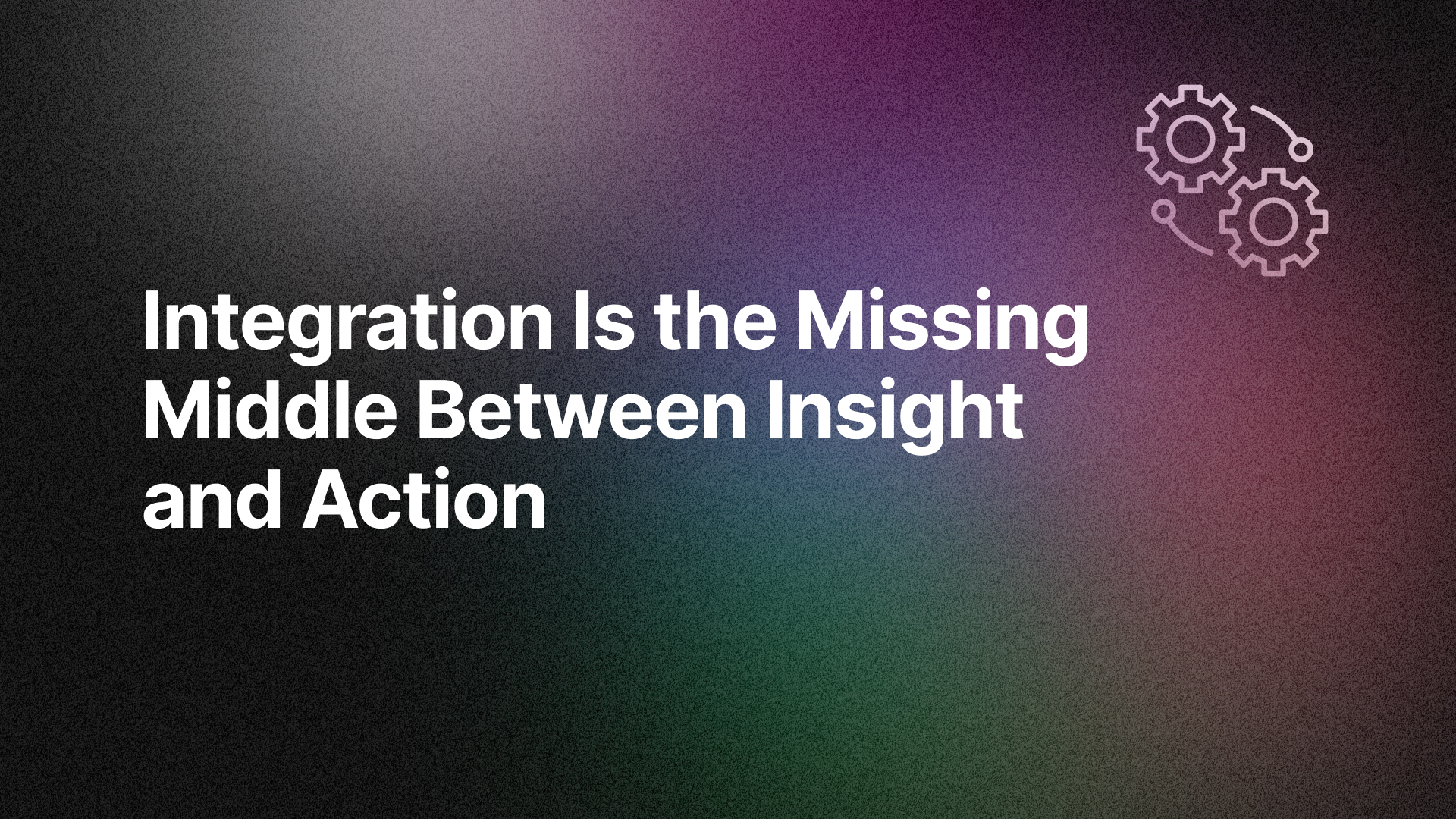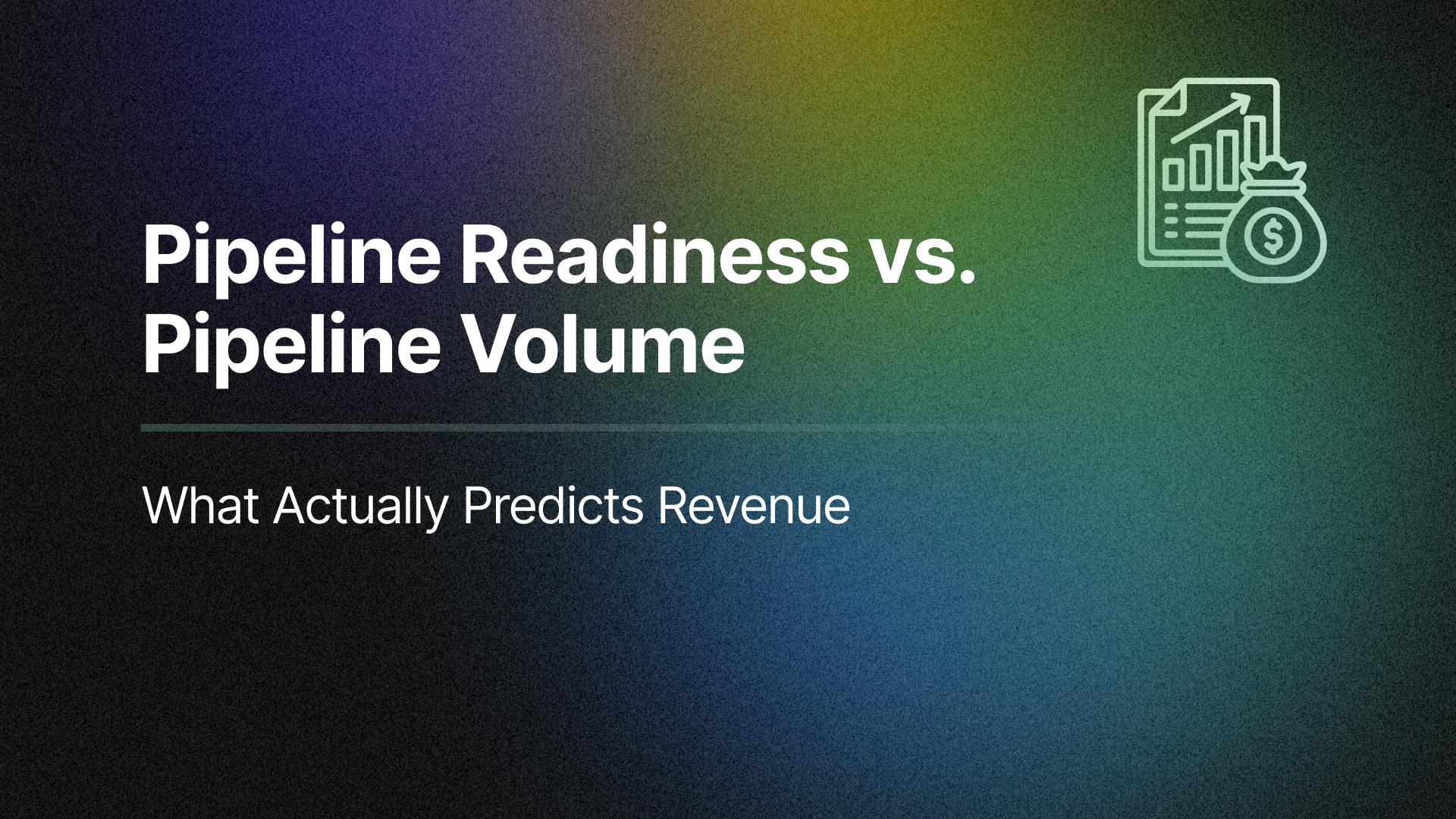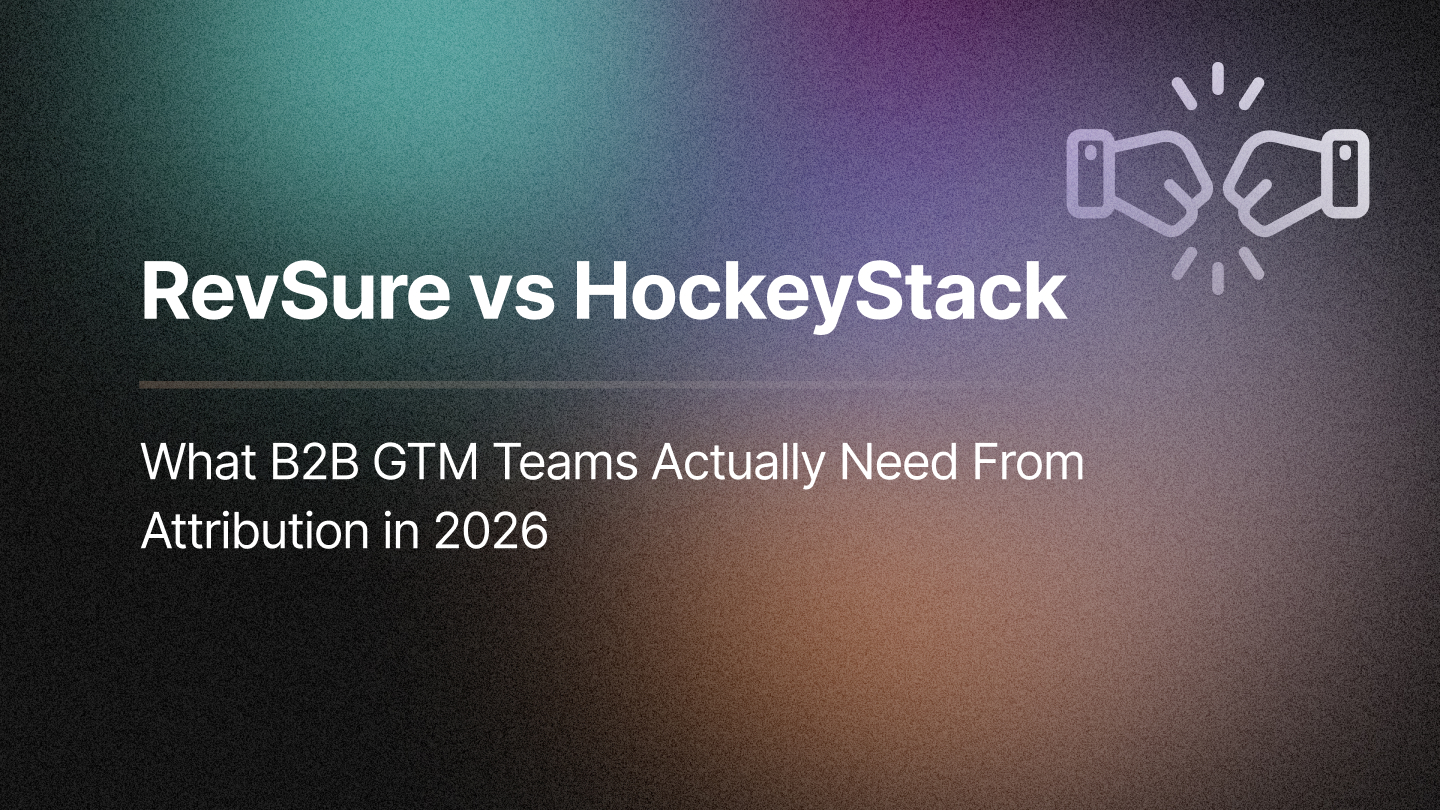Attribution has become one of the most talked-about topics in modern B2B marketing. Marketers invest in sophisticated tools to track every campaign touchpoint, every web visit, and every conversion. They build intricate models—first touch, last touch, multi-touch—and build dashboards to tell compelling stories about marketing’s influence on pipeline and revenue.
And yet, most attribution data ends up sitting in a slide deck or a dashboard. It’s reviewed at the end of the quarter, used to justify spend, and then… nothing. The insights don’t change strategy. They don’t inform sales. They don’t shape next steps. In short, attribution becomes a report, not an engine.
To realize the full value of attribution, organizations must move beyond measurement and into action. The real power lies in operationalizing attribution—using it to optimize campaigns, prioritize accounts, inform sales plays, and improve GTM alignment.
Here’s why attribution alone isn’t enough—and how RevSure helps bridge the gap between insight and impact.
The Attribution Trap: When Measurement Doesn’t Lead to Movement
Marketers often celebrate when they can finally prove that “Marketing sourced $1.2M in pipeline” or “influenced 65% of closed-won deals.” These numbers feel like validation—and they are, to a point. But if these insights don’t lead to action, their value diminishes quickly.
Here’s where attribution efforts often fall short:
1. It’s Backward-Looking
By the time attribution data shows which campaigns contributed to revenue, the quarter is over. The budget is spent. The leads have moved on. Insight comes too late to change outcomes.
2. It’s Not Granular Enough to Guide Strategy
Campaign A drove more pipeline than Campaign B—but which segments performed best? What content touched the leads that converted? What channel actually pushed buyers deeper into the funnel? Without these layers, it’s hard to apply insights in real time.
3. It’s Disconnected From Sales Motion
Attribution often lives in marketing dashboards. Sales doesn’t see it. Sales doesn’t use it. This means a rep may never know that a prospect engaged with three webinars, two ebooks, and a product demo before they even hit the CRM.
Check out the video below by Deepinder Singh Dhingra, Founder & CEO of RevSure, to learn what you should expect from your attribution strategy.
What Operationalized Attribution Looks Like
Operationalizing attribution means that insights don’t just sit in reports—they are integrated into workflows, synced across systems, and used to drive decisions every day.
Here’s what that looks like in practice:
1. Campaign Optimization in Real Time
Rather than waiting for post-mortems, marketers can use early attribution signals to tweak messaging, adjust targeting, or reallocate budget mid-campaign.
2. Sales Enablement With Context
Give SDRs and AEs access to attribution data that shows how a lead engaged—what they read, watched, or clicked—so they can tailor their outreach and speak directly to the prospect’s interests.
3. Better Lead & Account Prioritization
Leads and accounts with strong multi-touch engagement should rise to the top of the queue. Attribution can power predictive scoring and ensure teams focus on what’s most likely to convert.
4. Marketing-Sales Alignment
When attribution insights are shared across teams, both marketing and sales can align around what’s working—what content to promote, what campaigns to double down on, and how to engage high-value accounts.
What’s Needed to Make This Happen
Operationalizing attribution requires more than just data collection. It takes:
1. Full-Funnel Visibility: You need to see every interaction—from the first anonymous website visit to the closed-won opportunity. This ensures attribution isn’t just campaign-driven but aligned to the entire buyer journey.
2. Integrated Systems: Attribution data must flow between your CRM, marketing automation platform, sales engagement tools, and data warehouse. This allows every team to operate off the same source of truth.
3. Predictive Intelligence: Raw attribution is helpful, but AI can take it further—highlighting not just what happened, but what’s likely to happen. Which accounts are warming up? Which channels are most likely to influence conversion?
How RevSure Brings Attribution to Life
RevSure is designed to turn attribution from a static report into a dynamic growth engine. It connects your GTM data—across CRMs, MAPs, and analytics platforms—and layers in AI to surface what’s working and what to do next.
Here’s how RevSure helps operationalize attribution:
Full-Funnel Attribution With Buyer Journey Insights
RevSure gives you visibility into every marketing and sales touchpoint—so you can understand the influence at each stage of the funnel. Not just what led to the lead, but what pushed them to convert.
RevSure doesn’t just show attribution; it predicts what touchpoints are most likely to lead to pipeline. This allows you to shift resources in real-time—not just after the fact.
Connected Actions Across Systems
RevSure writes insights back to your CRM, so attribution doesn’t live in isolation. Sales can see what campaigns drove engagement, and marketing can get feedback loops to improve targeting.
Campaign Performance That Drives Action
Rather than waiting until the quarter ends, RevSure’s Marketing Performance Dashboard lets you see what campaigns are performing now—so you can pivot, scale, or pause based on real conversion signals.
Conclusion: Turn Insight Into Impact
Attribution is no longer a “nice to have.” But it’s also no longer enough to just measure. Today’s GTM teams need attribution that drives action, fuels optimization, and creates alignment across every stage of the funnel.
Because in a world where speed, precision, and ROI matter more than ever, attribution without action is just a report. Want to see what operationalized attribution looks like in action?
Book a demo with RevSure and start turning your attribution insights into revenue-generating decisions.
Related Blogs








